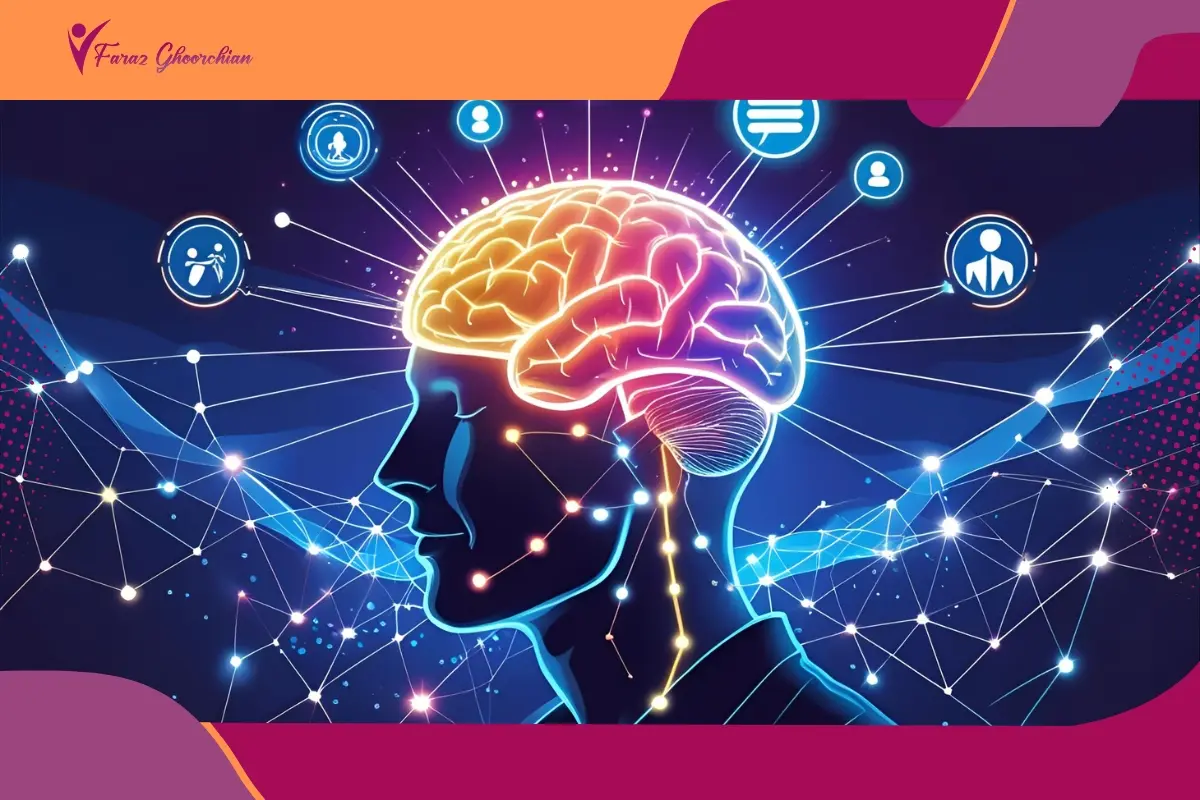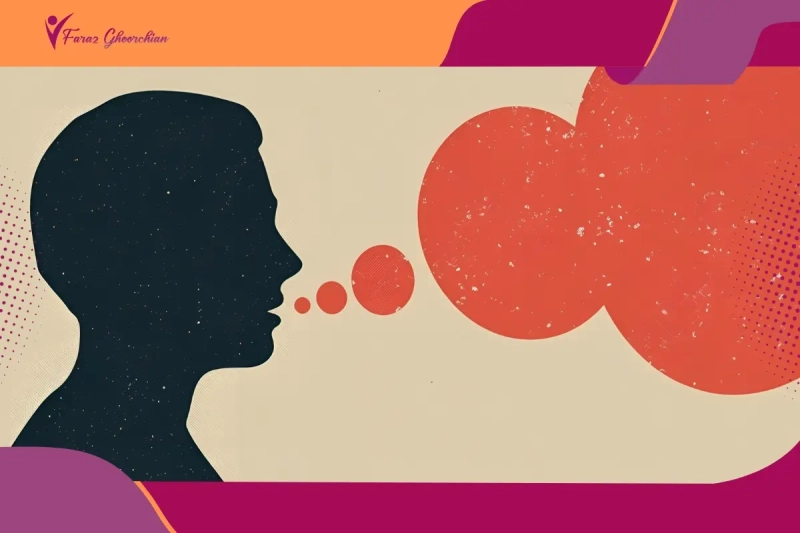Discover what emotional intelligence really means, why it matters, and how to improve it in work, relationships, and everyday habits. Learn practical skills and examples for success.
- 1. Introduction to Emotional Intelligence
- 2. Emotional Intelligence Meaning in Psychology
- 3. Why Is Emotional Intelligence Important?
- 4. Components of Emotional Intelligence Explained
- 5. Emotional Intelligence in the Workplace
- 6. Emotional Intelligence in Relationships
- 7. Emotional Intelligence for Kids and Teens
- 8. How to Improve Emotional Intelligence
- 9. Practical Emotional Intelligence Habits
- 10. Conclusion: Building a Future with Emotional Intelligence
Introduction to Emotional Intelligence
You probably know someone who can walk into a room and instantly sense the mood, or a friend who always seems calm even when things go wrong. That quality is what people mean when they talk about emotional intelligence. Psychologists describe the emotional intelligence meaning as the ability to notice feelings, make sense of them, and respond wisely. It is not just theory; it shows up in daily life. A manager who listens before reacting, a parent guiding a frustrated teenager, or a partner who knows when to give space are all simple examples. In fact, one of the best ways to explain emotional intelligence with examples is by looking at these everyday moments where patience, awareness, and empathy change the outcome. With practice, emotional intelligence development becomes a lifelong skill, helping people reduce stress, strengthen connections, and bring more balance into both work and relationships.
Emotional Intelligence Meaning in Psychology
We’ve all had moments when emotions take over, maybe snapping at someone too quickly or holding back words we later wish we said. Psychologists use these moments to explain what emotional intelligence really is. In psychology, the emotional intelligence meaning is less about controlling feelings and more about understanding them. It is noticing what you feel, seeing the same in others, and then choosing a response that keeps the situation balanced.
The components of emotional intelligence become clear in everyday life. A person who feels nervous before speaking but pauses to steady themselves shows self-regulation. A friend who picks up on your mood without you saying a word shows empathy. These examples help explain why emotional intelligence development matters. It shapes how people handle stress, resolve conflicts, and connect more deeply with those around them. Instead of being ruled by emotions, they learn how to use them in ways that build trust and resilience.
Why Is Emotional Intelligence Important?
Think of the last time someone calmed you down just by the way they listened. No clever solution, no big speech, only presence. That is where the real value of emotional intelligence shows up. Psychologists often remind us that while knowledge helps, emotions usually guide how people react, connect, and make decisions.
The components of emotional intelligence are not abstract ideas. They appear in everyday life. A co-worker who notices the tension in a room before anyone speaks. A parent who slows down instead of snapping when their child misbehaves. These are the quiet skills that shape trust.
In modern offices, leaders with strong emotional intelligence skills often succeed because people feel understood, not managed. This is where emotional intelligence in leadership becomes a turning point, since guiding others requires patience, empathy, and the ability to handle pressure without breaking trust. That is why so many now view emotional intelligence in the workplace as essential, not optional. Away from work, it is just as powerful. Friendships last longer, families feel steadier, and conflicts soften. Put simply, emotional intelligence development matters because it makes human connection deeper and life a little easier to carry.
Components of Emotional Intelligence Explained
When psychologists talk about the components of emotional intelligence, they are really describing everyday habits. The emotional intelligence meaning in psychology becomes clear when you notice how people use these skills without even thinking about them.
- Self-awareness: It’s the moment you catch yourself getting defensive in a conversation and admit, “I’m upset.” Just noticing it changes the outcome.
- Self-regulation: Everyone loses their temper sometimes. But choosing to pause instead of snapping—like a parent calming down before answering a teenager—shows how this skill works.
- Motivation: This is what keeps a person moving after hearing “no” again and again. Many rely on these emotional intelligence skills to turn rejection into persistence.
- Empathy: We’ve all sensed when a friend is low without them saying a word. That unspoken awareness is the key to improving social relations in every part of life.
- Social skills: Think of a leader who listens more than they talk. Or a colleague who makes space for others. Those small choices create trust.
Together, these elements make emotional intelligence development less about theory and more about the daily practice of patience, empathy, and balance.
Emotional Intelligence in the Workplace
Most of us have worked with someone who made the office tense just by walking in. On the other hand, you probably remember a manager who stayed calm when everything was falling apart. That quiet steadiness is what emotional intelligence in the workplace really looks like. It is less about titles and more about how people handle feelings under pressure.
The components of emotional intelligence are visible in small, everyday moments. A co-worker who admits they are stressed before snapping at others is showing self-awareness. The colleague who holds back frustration during a tough meeting is practicing self-regulation. A manager who notices a burned-out team member and checks in with empathy can change the whole day. Even simple social skills, like listening without cutting someone off, build trust and create space for growth, much like learning how to build self-esteem in adults, which also depends on awareness and steady habits.
Teams led by people with strong emotional intelligence skills usually feel safer and more motivated. Over time, emotional intelligence development shapes an environment where cooperation grows naturally and conflicts don’t linger. In that sense, emotional intelligence at work is not a bonus; it’s the glue that keeps people and performance connected.
Emotional Intelligence in Relationships
Anyone who has been in a close relationship knows that emotions can either pull people together or push them apart. What makes the difference is often emotional intelligence in relationships. It is the quiet skill of noticing feelings, choosing words carefully, and showing empathy even in the middle of conflict.
The components of emotional intelligence appear in simple ways. A partner who admits, “I’m upset but I don’t want to argue,” is practicing self-awareness. A friend who listens instead of rushing to give advice is showing empathy. These moments may look small, yet they build the trust that relationships depend on and reflect a form of emotional relationship literacy, the ability to understand and respond to emotions in ways that strengthen connection.
Over time, strong emotional intelligence skills make bonds steadier. Couples who work on emotional intelligence development usually resolve disagreements faster and feel closer after challenges. At every level of family, friendships, or romance, empathy and patience create a foundation for relationships that truly last.
Emotional Intelligence for Kids and Teens
Anyone who has raised a child knows how quickly emotions shift. One moment they are laughing, the next they are in tears. Helping them build emotional intelligence for kids means giving them words for those feelings and showing them what to do with them. Something as simple as asking, “Are you angry or just tired?” teaches self-awareness. Encouraging a child to notice when a friend feels left out builds empathy, one of the key components of emotional intelligence.
By the teenage years, emotions run even higher. Peer pressure, exams, and the need to fit in often create stress. This is where emotional intelligence for teens becomes especially valuable. Teens who practice these skills are usually better at handling pressure and making healthy choices. A journal to reflect, a teacher who listens, or a parent who encourages calm conversations all support emotional intelligence development. Over time, these practices become emotional intelligence good habits that strengthen confidence and resilience. They not only improve relationships but also give both kids and teens a steadier sense of balance.
How to Improve Emotional Intelligence
People often ask about how to improve emotional intelligence, and the truth is it rarely happens overnight. It grows through the little choices we make every day. The emotional intelligence meaning in psychology is simple: awareness, empathy, and control of feelings. But putting that into practice is where change begins, and this is why many guides on emotional intelligence how to improve highlight steady daily habits rather than quick fixes.
- Self-awareness: We’ve all had that moment where we snap at someone, only to realize later we were just exhausted. Writing down emotions or talking them out can help, and over time this honesty with yourself builds strength.
- Self-regulation: It sounds small, but one deep breath before replying can stop an argument. Choosing silence or a short walk instead of reacting fast slowly helps people improve confidence in handling stress.
- Empathy: A quiet friend at dinner, a teenager shutting their door: these are signs. Asking gently shows care, and this is where emotional intelligence in relationships really matters.
- Social skills: At work, joining a discussion or listening fully can change the mood of a team. That’s why emotional intelligence at work is linked so strongly to trust and collaboration.
With practice, these steps turn into emotional intelligence development. Not perfect, not all at once, but enough to make life calmer and relationships stronger.
Practical Emotional Intelligence Habits
The easiest way to build practical emotional intelligence habits is to sneak them into everyday life. The emotional intelligence meaning in psychology reminds us that skills like awareness and empathy don’t grow from theory, they grow from practice. Experts often note that consistent routines become emotional intelligence good habits, shaping how people think, react, and connect with others. A few ideas:
- Reflect a little: Some people write in a journal, others just think in the shower. The trick is paying attention to moods. Noticing that you were grumpy only because you were hungry can stop bigger problems later. Reflection also helps with how to manage boredom, since it keeps the mind engaged.
- Pause when it counts: A slow breath before answering a sharp remark at work changes everything. It’s a simple way to grow emotional intelligence skills in stressful moments.
- Listen better: Letting someone finish their story without jumping in shows respect and makes people feel valued.
- Keep tiny routines: A walk after lunch, jotting down gratitude, or just five minutes of quiet. These things build resilience and fuel emotional intelligence development.
Over time, these habits make emotional intelligence in relationships and at work feel less like effort and more like second nature.
Conclusion: Building a Future with Emotional Intelligence
The truth is, emotional intelligence development isn’t something you tick off a list. It bends and changes with life. Some days it feels easy, other days it slips through your hands. That’s part of it. The emotional intelligence meaning in psychology is simple enough: notice emotions, manage them, and connect with people. The practice, though, is messy.
In the workplace, one thoughtful pause can change the tone of a meeting. At home, a bit of patience can turn conflict into calm. These small choices are where emotional intelligence skills really live. Over time, they make emotional intelligence in relationships stronger, steadier, and more real. The future shaped by those habits may not be perfect, but it will almost always feel more human.















